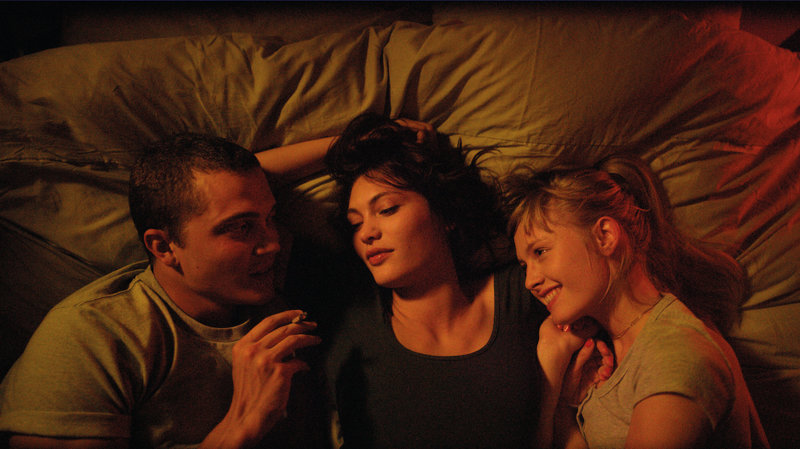Gaspar Noé’s ‘Love’ adopts a non-linear narrative that depicts modern love primarily through the physical encounters of its characters. Apart from its impressive camera work and boundary-pushing sex scenes, there’s something about the film that hits home and feels deeply personal. As a result, one can’t help but wonder if it actually recounts the experiences of an actual couple or simply draws its inspiration from real life.
Is Love Based on a True Story?
No, ‘Love’ is not based on a true story, but the film’s depiction of romance and one’s wasted youth has a deep sense of authenticity to it. There’s a brief scene midway through the runtime of the movie where its main character, Murphy, an aspiring filmmaker, talks about how he wishes to make a film that captures “authentic human sexuality.” This scene in itself seems to be a reflection of what Gaspar Noé wants to depict in ‘Love’ as its sex scenes bring in a lot more sentimentality to the relationship of its characters.
Despite being graphic, these scenes have enough context to differentiate them from porn. Sure, almost all of them are purposefully titillating, but at the same time, not once do you find them gratuitous. Another interesting tidbit of the movie is that the main character Gaspar literally wants to name his son Gaspar in the film. This seems to be the director’s way of making the film a self-indulgent nostalgia of some sort. What further stems this notion is the fact that the Gaspar Noé even plays a small role in the film—the married artist who is Electra’s ex. In an interview, the director also explained how he has no interest in making coming-of-age films since he believes that they are all overly dramatized.
Since ‘Love’ features two newcomers, the performances of its leading cast are far from being perfect. However, either because of their raw dialogues or the movie’s redolent direction choices, there are moments where you find yourself living your own past relationships and the experiences you had with them. Just like real life, sparks fly between Electra and Gaspar when they meet for the first time. But their toxic choices eventually ripple down on their future and test their relationship. This subtle transition from its depiction of a perfect relationship to one that feels helplessly destroyed is very moving because of how realistically the film’s plot is structured. Even its ending is very different from your typical romance films where characters seemingly live “happily ever after.” Here, although still in love, the main characters desperately try to hold on to whatever remains of their relationship. It is, indeed, depressing yet honest towards what it intends to be.
Read More: Love Ending, Explained

